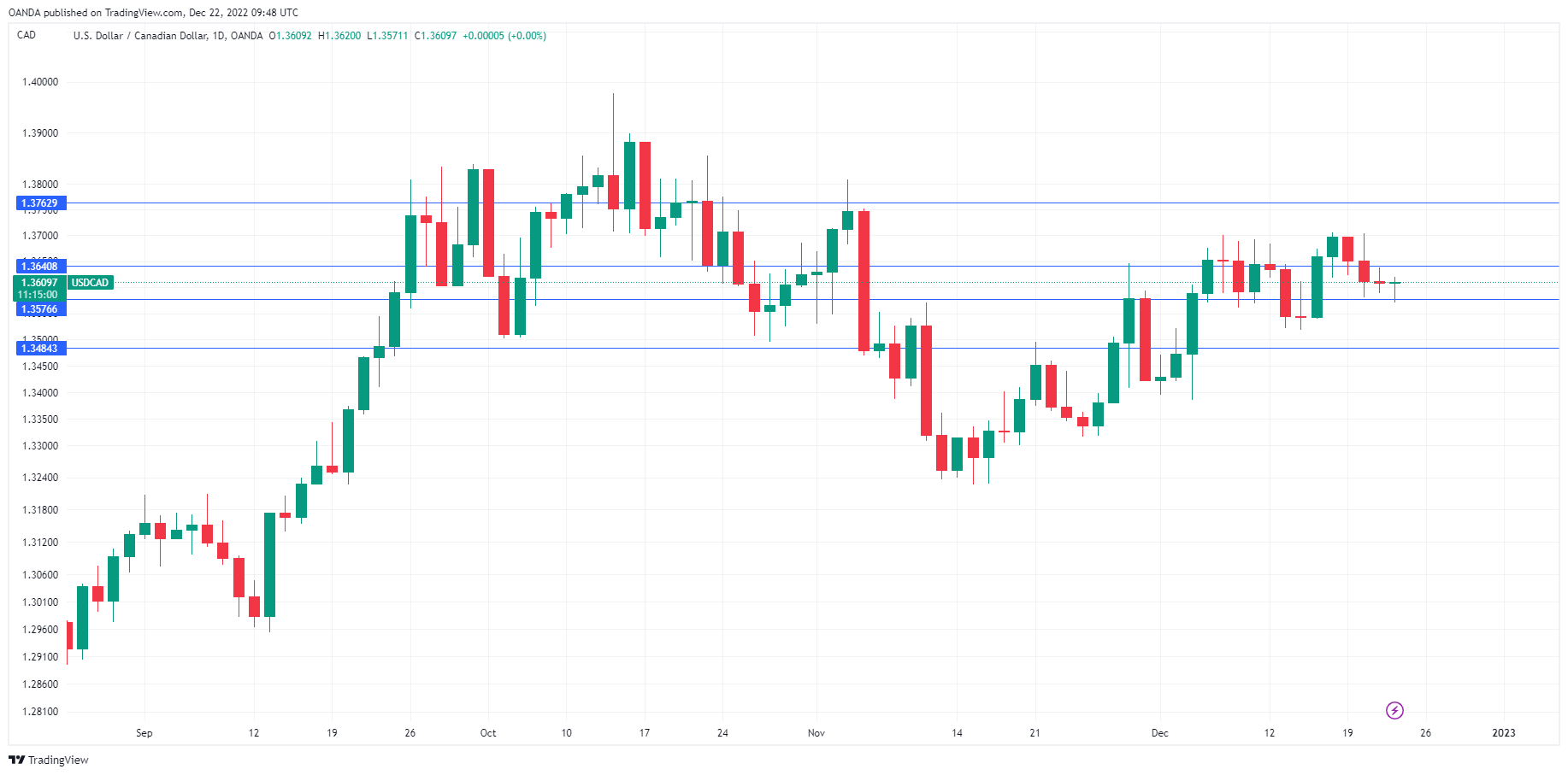The Canadian dollar continues to have an uneventful week. USD/CAD is unchanged on Thursday, trading at 1.3608 in the European session.
Canada’s CPI slows to 6.8%
There was mixed news from Canada’s November inflation report and the Canadian dollar showed little reaction. Headline CPI slowed to 6.8%, down from 6.9% in October but above the consensus of 6.7%. However, the trimmed and median core rates, two key measures that the Bank of Canada uses to track core CPI, were slightly higher in November. This could leave BoC policymakers scratching their heads as to which way inflation is headed – it appears too early to tell if inflation has peaked and is finally moving in the right direction.
Investors were hoping the inflation report might provide some clues about what to expect from the BoC at its January meeting. Inflation remains the BoC’s number one priority, and at the December meeting, the BoC rate statement said that inflation was “too high”. The latest data is unlikely to change this view, which means that there’s a strong likelihood of the BoC delivering a modest hike of 25 basis points after back-to-back increases of 50 bp.
BoC Governor Macklem said earlier this week that the Bank had badly miscalculated the rise in inflation, and I would expect Macklem will want to see strong evidence that inflation has peaked before he will consider wrapping up the current rate tightening cycle.
USD/CAD could show some volatility on Friday, with key releases on both sides of the border. Canada will release GDP for October, with a weak gain of 0.1% m/m expected, unchanged from September. The US will publish the Core PCE Price Index for November, the Fed’s preferred inflation indicator. The index is expected to slow to 4.6% y/y, down from 5.0%.

USD/CAD Technical
- USD/CAD is putting on pressure on resistance at 1.3640. Above, there is resistance at 1.3762
- There is support at 1.3576 and 1.3454
